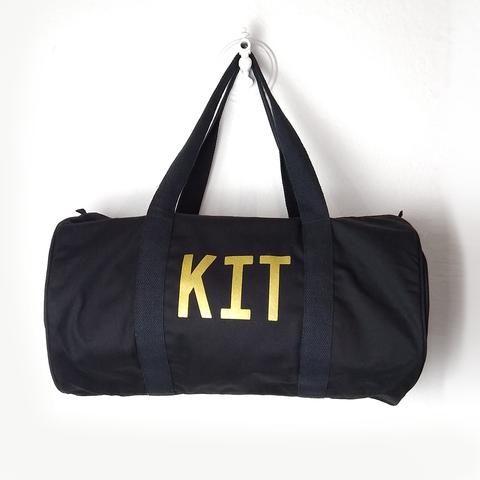How to Teach Kids About Health and Nutrition in Modern Age
1
Proper nutrition has been a huge challenge for decades now, and it only seems to get more complicated. It’s difficult for adults to stay alert and informed about the kind of food that’s being sold at stores or served in restaurants, but when it comes to feeding your children, the matter takes on a whole other level of importance. In the age of marketing, parents are struggling with denying their children the foods that are specifically targeted at kids – all those shiny packages, toy incentives and cartoon characters, promoting food that’s packed
SelfishMother.com
2
with sugar and additives. In this article, we will give you some advice on how to fight the forces that are luring your kids toward unhealthy food, by teaching them about health, nutrition, and thinking for themselves.
Limit television
This really is the starting point, considering that television has a huge subconscious impact on adults, let alone on children. If you don’t want your child throwing a tantrum or pulling your sleeve for some sugar drenched cereal that’s advertised as „delicious, healthy and amazing fun
SelfishMother.com
3
to eat“, it’s best to only play recorded movies and cartoons or channels you trust, and always mute the TV during commercial time. Use that time to demonstrate to them at an early age that it’s a good occasion to do some stretches.
Teach nutrition through stories and discussion
For smaller children (from kindergarten to grade 2), it’s best to take a story-based approach, which also includes hands-on activities, as this keeps them interested. You can use some lesson plans that are aimed at teaching about the different types
SelfishMother.com
4
of food humans need in order to be healthy, and combine story-telling, discussion, crafting, and classroom cooking. The mentioned lesson plans suggest the appropriate books to use.
Use apps
Things have changed quite a bit, and today’s children get very used to, and very comfortable with technology, from an early age. Tablets are even used in some classrooms, and children are simply excited to learn this way. Plus, the available apps rely on teaching through games, so your kids won’t feel like it’s a task to learn these things,
SelfishMother.com
5
and they’ll remember better.
Pack lunch for school together
Have your children there while you’re packing their lunch. Talk to them about each thing you’re packing, and why. Have them suggest an idea of what to pack and discuss with them why that’s a healthy choice or not. It’s a good opportunity to teach them about nutrition and they will feel special for being involved in the kitchen, making them more eager to prove what they’ve learned. The emphasis is on „discuss“ – children are clever, and it doesn’t
SelfishMother.com
6
help at all to just tell them „This is bad for you“.
Demonstrate to them where food is coming from
Just like preparing lunch together, this is a great opportunity to talk and discuss, plus it relies on visualization and connecting information, which will make your child think and feel, definitely leaving an imprint. Take them grocery shopping with you, take your time and ask them if they know where certain products are coming from. Talk to them about it and show them pictures of processing factories when talking about
SelfishMother.com
7
processed foods. Make a trip to a local farm to show them where organic groceries at the supermarket come from (there are a lot of farms to which families can come and buy or even pick fresh produce, so make a day of it). Experiencing, or even just visualizing the factory environment and the natural, outdoor farm environment will leave an impression on your child. Discuss with them what kind of feelings each awakens, and why. Talk about nature and how humans have been connected to it for a long, long time.
Be consistent
As
SelfishMother.com
8
with everything else in parenting, teaching your children about health and nutrition requires creativity, patience, and most important of all – consistency. When they get a little older they develop reasoning skills, but smaller children simply would not understand why it’s okay to eat chips on a special occasion, if you’ve taught them that chips are unhealthy – their reasoning is black and white in the beginning, so you need to teach them in this manner in order to create a strong foundation for later years.
Understandably, there will be
SelfishMother.com
9
many times when you’ll be challenged by advertisements and social gatherings, where it’s especially hard to maintain the established discipline.But in the end, that’s what parenting is about – pushing through challenging situations for the ultimate goal of protecting your child and teaching them proper values. So, be that person – get involved in school events to suggest the healthiest possible meals, talk to other parents about teaching their children proper nutrition, offer to help out with the food for an upcoming birthday party, etc. Be
SelfishMother.com
10
relentless, and above all, be a great role model, for it will pay off enormously.
SelfishMother.com
This blog was originally posted on SelfishMother.com - why not sign up & share what's on your mind, too?
Why not write for Selfish Mother, too? You can for free and post immediately.
We regularly share posts on @SelfishMother Instagram and Facebook :)
Cate Palmer - 13 Dec 17
Proper nutrition has been a huge challenge for decades now, and it only seems to get more complicated. It’s difficult for adults to stay alert and informed about the kind of food that’s being sold at stores or served in restaurants, but when it comes to feeding your children, the matter takes on a whole other level of importance. In the age of marketing, parents are struggling with denying their children the foods that are specifically targeted at kids – all those shiny packages, toy incentives and cartoon characters, promoting food that’s packed with sugar and additives. In this article, we will give you some advice on how to fight the forces that are luring your kids toward unhealthy food, by teaching them about health, nutrition, and thinking for themselves.
-
Limit television

This really is the starting point, considering that television has a huge subconscious impact on adults, let alone on children. If you don’t want your child throwing a tantrum or pulling your sleeve for some sugar drenched cereal that’s advertised as „delicious, healthy and amazing fun to eat“, it’s best to only play recorded movies and cartoons or channels you trust, and always mute the TV during commercial time. Use that time to demonstrate to them at an early age that it’s a good occasion to do some stretches.
-
Teach nutrition through stories and discussion

For smaller children (from kindergarten to grade 2), it’s best to take a story-based approach, which also includes hands-on activities, as this keeps them interested. You can use some lesson plans that are aimed at teaching about the different types of food humans need in order to be healthy, and combine story-telling, discussion, crafting, and classroom cooking. The mentioned lesson plans suggest the appropriate books to use.
-
Use apps

Things have changed quite a bit, and today’s children get very used to, and very comfortable with technology, from an early age. Tablets are even used in some classrooms, and children are simply excited to learn this way. Plus, the available apps rely on teaching through games, so your kids won’t feel like it’s a task to learn these things, and they’ll remember better.
-
Pack lunch for school together

Have your children there while you’re packing their lunch. Talk to them about each thing you’re packing, and why. Have them suggest an idea of what to pack and discuss with them why that’s a healthy choice or not. It’s a good opportunity to teach them about nutrition and they will feel special for being involved in the kitchen, making them more eager to prove what they’ve learned. The emphasis is on „discuss“ – children are clever, and it doesn’t help at all to just tell them „This is bad for you“.
-
Demonstrate to them where food is coming from
Just like preparing lunch together, this is a great opportunity to talk and discuss, plus it relies on visualization and connecting information, which will make your child think and feel, definitely leaving an imprint. Take them grocery shopping with you, take your time and ask them if they know where certain products are coming from. Talk to them about it and show them pictures of processing factories when talking about processed foods. Make a trip to a local farm to show them where organic groceries at the supermarket come from (there are a lot of farms to which families can come and buy or even pick fresh produce, so make a day of it). Experiencing, or even just visualizing the factory environment and the natural, outdoor farm environment will leave an impression on your child. Discuss with them what kind of feelings each awakens, and why. Talk about nature and how humans have been connected to it for a long, long time.
As with everything else in parenting, teaching your children about health and nutrition requires creativity, patience, and most important of all – consistency. When they get a little older they develop reasoning skills, but smaller children simply would not understand why it’s okay to eat chips on a special occasion, if you’ve taught them that chips are unhealthy – their reasoning is black and white in the beginning, so you need to teach them in this manner in order to create a strong foundation for later years.

Understandably, there will be many times when you’ll be challenged by advertisements and social gatherings, where it’s especially hard to maintain the established discipline.But in the end, that’s what parenting is about – pushing through challenging situations for the ultimate goal of protecting your child and teaching them proper values. So, be that person – get involved in school events to suggest the healthiest possible meals, talk to other parents about teaching their children proper nutrition, offer to help out with the food for an upcoming birthday party, etc. Be relentless, and above all, be a great role model, for it will pay off enormously.
Did you enjoy this post? If so please support the writer: like, share and comment!
Why not , too? You can share posts & events immediately. It's free!
LIST

























